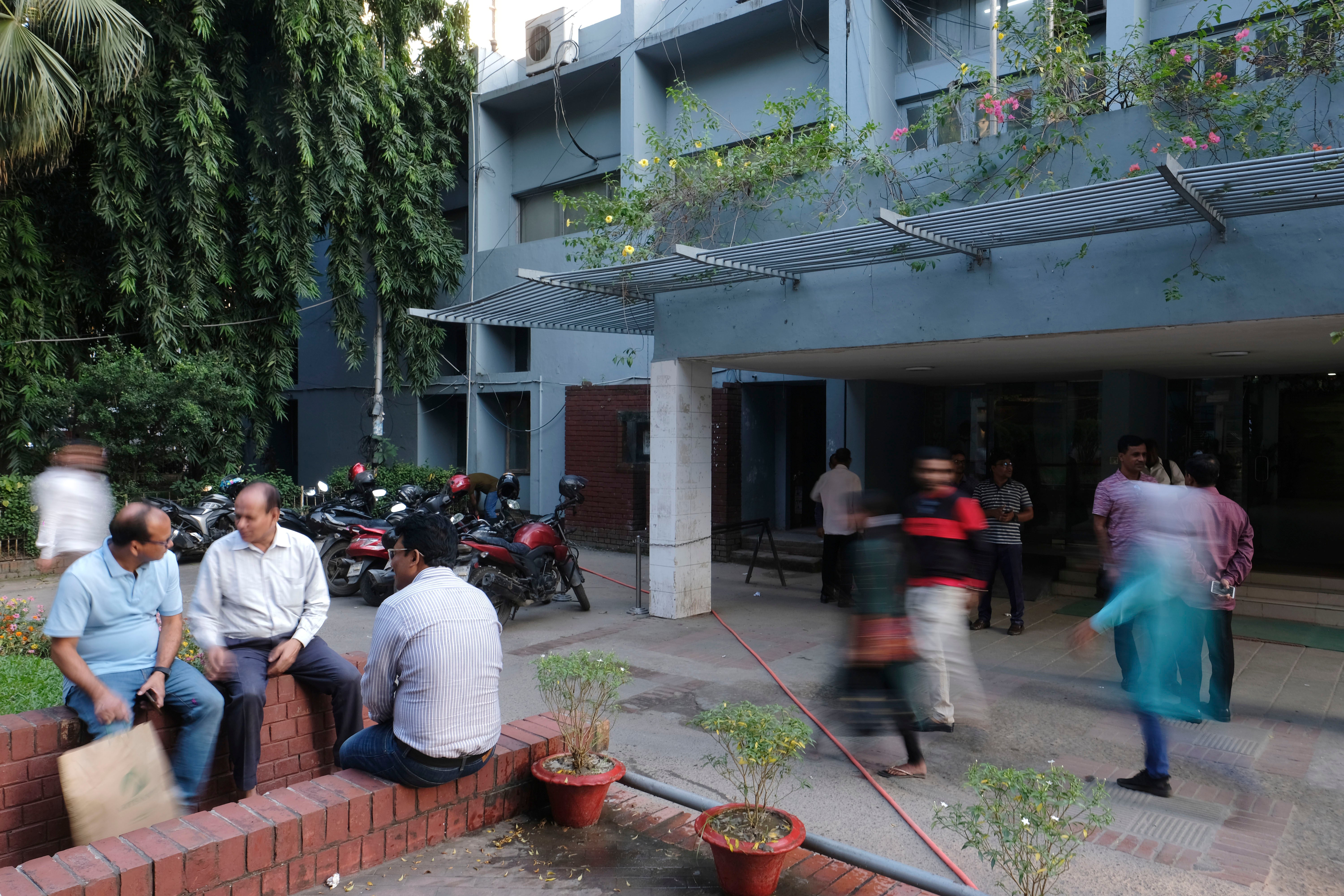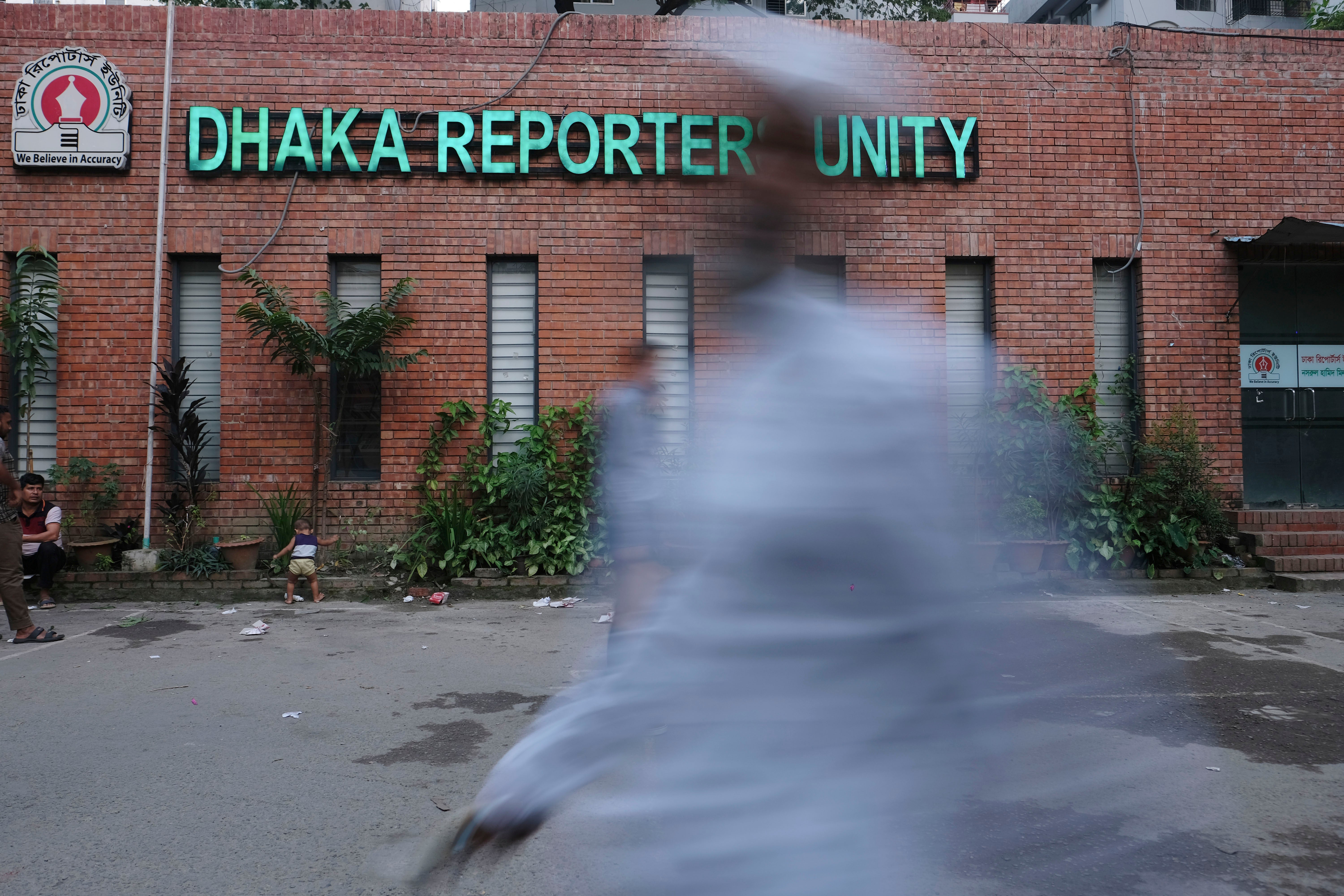Rights groups condemn Bangladesh for canceling accreditation of 167 journalists
Bangladesh’s interim government canceled press accreditations for 167 journalists

Your support helps us to tell the story
From reproductive rights to climate change to Big Tech, The Independent is on the ground when the story is developing. Whether it's investigating the financials of Elon Musk's pro-Trump PAC or producing our latest documentary, 'The A Word', which shines a light on the American women fighting for reproductive rights, we know how important it is to parse out the facts from the messaging.
At such a critical moment in US history, we need reporters on the ground. Your donation allows us to keep sending journalists to speak to both sides of the story.
The Independent is trusted by Americans across the entire political spectrum. And unlike many other quality news outlets, we choose not to lock Americans out of our reporting and analysis with paywalls. We believe quality journalism should be available to everyone, paid for by those who can afford it.
Your support makes all the difference.An association of editors and rights groups has condemned a decision by Bangladesh’s interim government to cancel press accreditations for 167 journalists, calling it a threat to press freedom in the country.
Between Oct. 29 and Nov. 7, the Press Information Department revoked the accreditations in three phases, drawing widespread criticism from press advocates and journalists.
The move has added to concerns over press freedom and harassment of journalists following the ouster of former Prime Minister Sheikh Hasina August in a student-led revolt against her government.
The Editors’ Council said the cancellation of accreditation by the interim government headed by Nobel Peace laureate Muhammad Yunus risks “fostering a climate of exerting control, including censorship, over the media”.
No reason was given in the notices by the department, except that the decision was made under provisions of a 2022 policy.
The department did not immediately respond to a request for comment by The Associated Press.
In a statement, the Editors' Council said Tuesday that while officials have the right to review any misuse of accreditation cards, they should not take action without providing specific allegations and proof of wrongdoing.
It added that the decision also went against the spirit of the revolution that toppled Hasina's 15-year rule. Hundreds were killed in the uprising that began as a protest over government jobs and morphed into a large-scale revolt against Hasina’s increasingly autocratic administration. Hasina fled to India.
The editors’ association said the interim government’s move was repeating the “undemocratic practices” of the previous Hasina-led government, and urged Yunus to uphold the rights of the press.

Hasina’s government was accused of using harsh tools and draconian laws to muzzle dissent, shrink press freedoms and curtail civil society. In 2024, her last year in power, Bangladesh plunged to 165th place out of 180 in the World Press Freedom Index, the country’s lowest ranking ever.
Journalists can continue to report and write without accreditation, but they will not be allowed inside any government ministry, restricting their ability to cover official events or press conferences. An AP journalist was among the 167 who have had their accreditations canceled.
“We condemn in the strongest terms this move by Bangladesh authorities to crack down on independent journalists. We urge the interim government to restore our journalist’s credentials immediately,” AP Executive Editor Julie Pace said.
Media watchdog Reporters Without Borders said in a statement that the decision to strip accreditation “encourages self-censorship” and was “incomprehensible” as it came just a week after the Information Ministry established a committee to monitor cases of harassment against journalists.
Transparency International Bangladesh called the revocation of accreditation cards, as well as other reports of threats and attacks against the press, an indicator of “an anti-people authoritarian regime.”
The interim government, which took charge in August, has previously vowed to restore democracy and uphold the free press. In an interview with the country’s largest newspaper, Prothom Alo, Yunus advocated for media freedom. “Write as you please. Criticize. Unless you write, how will we know what is happening or not happening?” he said last month.
But harassment and attacks against journalists have persisted.
At least 25 journalists, including those perceived as pro-Hasina, have been charged for alleged violence in connection with the protests, according to Reporters Without Borders.
In August, Human Rights Watch denounced the arrest of two journalists, and expressed concerns that the justice system was “replicating its abusive and partisan behavior” without following due process and was “merely reversing those targeted."